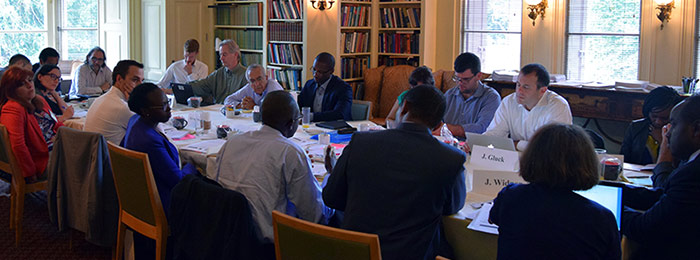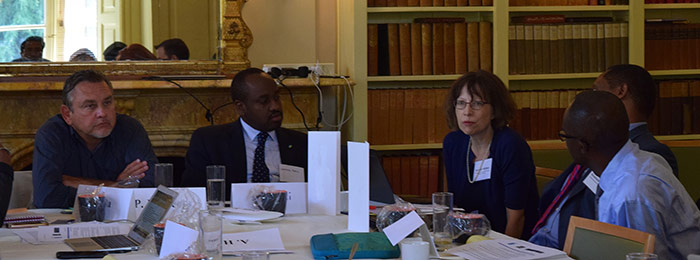A two-day meeting convened government officials from conflict-affected areas Aug. 9-10 on the Princeton University campus to discuss how centers of government can best coordinate and communicate in difficult circumstances.
The event — “Functioning Centers of Government in Fragile and Conflict-Affect Settings: What Works?” — was sponsored by Innovations for Successful Societies (ISS), based at the Woodrow Wilson School of Public and International Affairs, and was part of a collaboration to foster innovation and an exchange of experience at the very top of government. Those in attendance included senior leaders from Africa, United Nations officers as well as leaders from the Tony Blair Institute for Global Change and ISS.
 “Effective cabinet offices are crucial for making government work,” said Jennifer Widner, professor of politics and international affairs and director of ISS. “When they function well they support decision making, coordinate and track initiatives and target communication strategically.”
“Effective cabinet offices are crucial for making government work,” said Jennifer Widner, professor of politics and international affairs and director of ISS. “When they function well they support decision making, coordinate and track initiatives and target communication strategically.”
The leaders in attendance represented Rwanda, Liberia, Sierra Leone, Gambia, and Central African Republic. The meeting was held under Chatham House Rule, meaning participants were able to share information, but the identity and affiliation of the speaker remained anonymous. Ideas were shared in a group, and a person from each of the countries launched the discussions.
A common theme throughout the two-day event was the importance of a citizen-centered approach. Examples of this include: taking the cabinet on tour to meet directly with local officials and members of the public and adopting a broadcast “call-in” program to enable citizens to ask questions or raise problems. Survey-based citizen report cards could also be used to help flag the issues governments could address. Leaders in the audience agreed that such strategies could improve communications, especially in areas devoid of journalists or objective journalists.
At the meeting, leaders shared tips about how to handle especially difficult challenges. Such examples included clarifying roles and decision processes when constitutions or peace agreements leave these ambiguous, or how to limit priorities when everything needs doing at once.

Many participants stressed the need for some modest, quick successes. In Liberia, President Ellen Sirleaf had a saying, “Small like today, big like tomorrow.” An example of this is beginning with small improvements like adopting street lights or installing generators in hospitals and then gradually expanding the electrical grid.
ISS previously provided assistance to the U.N. on events related to the management of centers of government; this two-day meeting built upon this work. A more detailed summary and case studies appear on the Innovations for Successful Societies website.

